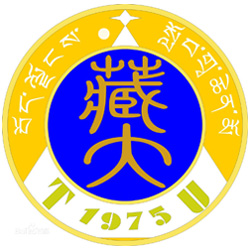七下英语Unit 5.1 I usually come to school by subway.

重点句子:
1.—Happy New Year!
新年快乐!
—The same to you!
也祝你新年快乐!
2.—How do you usually come to school?
你通常怎样去学校?
—I usually come to school by subway.
我通常坐地铁去学校。
3. It's time for class.
是时间上课了。
4.—What time do you usually get up on weekdays?
周末你通常几点起床?
—I always get up at six o’clock.
我总是6点起床。
5. The early bird catches the worm.
早起的鸟儿有虫吃。
6. I usually come to school on foot, but sometimes by bike.
我通常步行去学校,但是有时骑自行车去学校。
7.—What does he usually do after school?
放学后他通常做什么?
—He usually plays soccer, but he doesn’t play basketball.
他通常踢足球,但是他不打篮球。
8.—How often do you come to the library?
你多久去一次图书馆?
—Three times a week. /Once a week./ Twice a week.
一周三次/一周一次/一周两次
短语:
1. come on 快点;加油
2. on foot 步行
3. watch TV 看电视
4. at school 在学校
5. after school 放学后
6. listen to 听;倾听
7. for a short time 一会
8. play soccer/basketball 踢足球 /打篮球
9. be over 结束
10. in one’s free time 在某人空闲的时间
11. It’s time for sth.=It’s time to do sth.
是时间做某事
12. on weekdays 在周末
13. have...class 上...课
14. no more 不再
15. be different from 与...不同
16. go…by subway = take the subway 坐地铁
17. go…by bike = ride a bike 骑车
18. go…on foot = walk 步行
19. go…by bus = take a bus 坐公交车
20. go…by car = take a car 开车
21. go…by plane = fly 坐飞机
22. get up 早起
23. get home 到家
24. go to bed 睡觉
语法:
频度副词
never 从不﹤seldom 很少﹤sometimes 有时﹤often 经常﹤usually 通常﹤always 总是
这些词表示经常性的动作或状态,而不是某一具体动作,常用于一般现在时中,一般在系动词be、情态动词(can,may等)
或助动词(do,does)之后,在行为动词(play,go等)之前。
①对频度副词提问时,疑问词用how often
②频度副词与not连用时,表示部分否定。
英语自然拼读法则规则
英语时态:一般过去时
高考相关内容
高考资讯推荐
热门高校
大学院校在线查
报考信息
高考问答
有疑问就来发现


 英语自然拼读法则规则
英语自然拼读法则规则 英语时态:一般过去时
英语时态:一般过去时











![[官方发布]河北美术学院2023年艺术类专业校考报考信息一览表](https://img1.gengsan.com/ziyuan/wenjian/tupian/fengmiantu/2019/201909021620168172.jpg)































